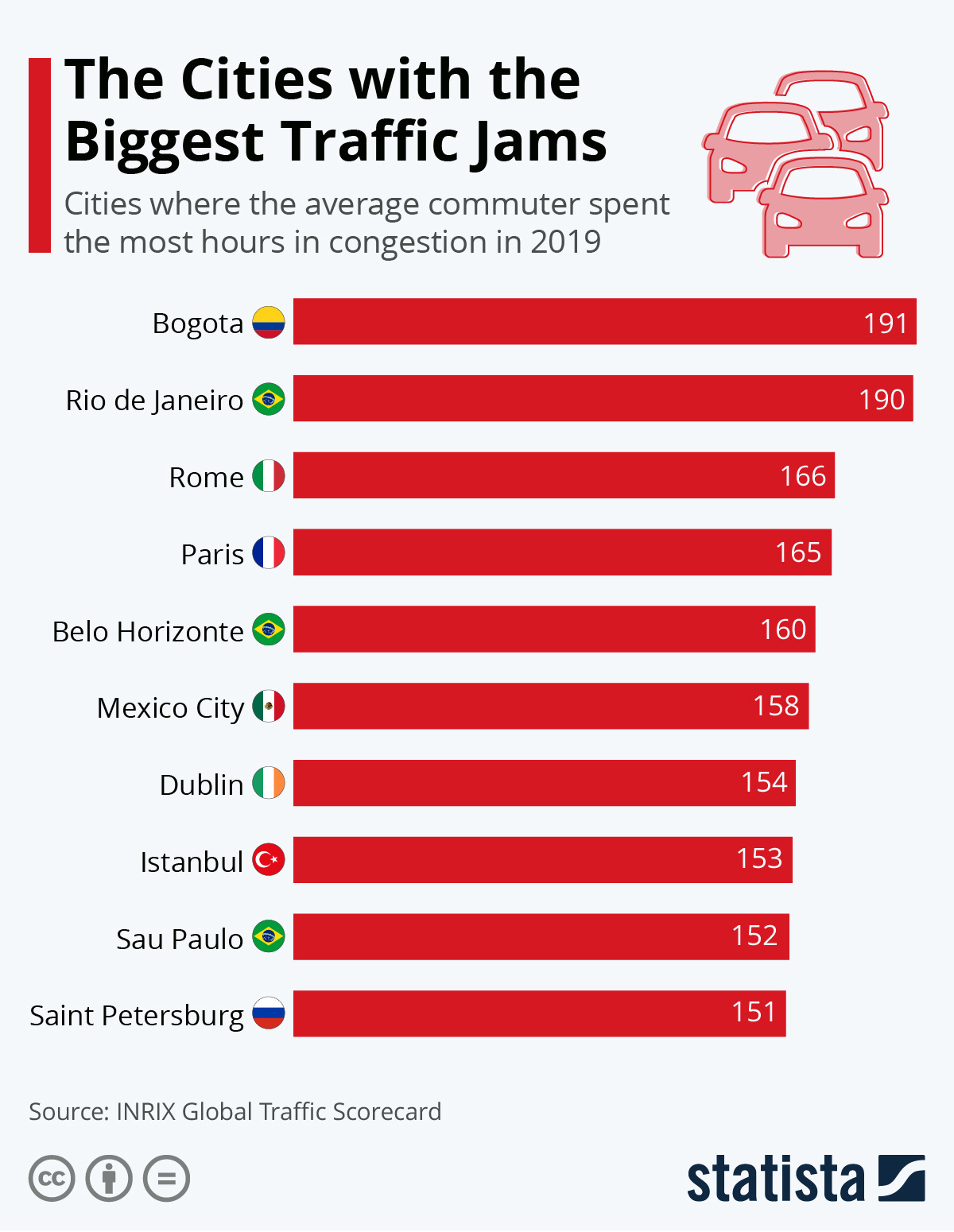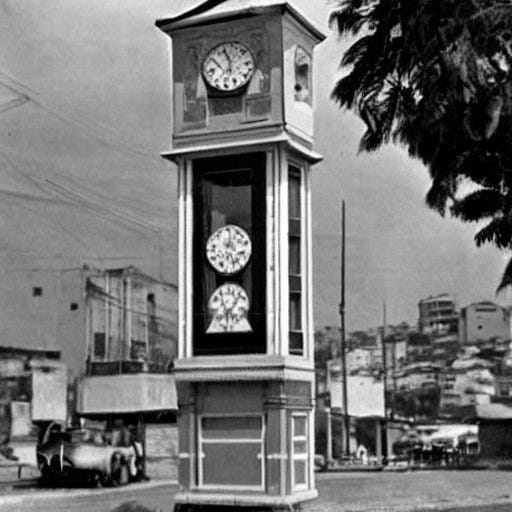Why Latinos are always late? An economic analysis or why I like being on time.
Tardiness: A Cultural, Personal, and Economic Problem
As a Latino living in Germany, it is not uncommon for my European friends and acquaintances to say something along the lines of "Wow Leo you made it on time" with a slight pang of genuine surprise whenever I arrive on time to a social event, a friend's house, or any other location.
At first this was a nice compliment, but after a while it got me thinking; why was that such surprise? was it because I was arriving on time, breaking the expectation of the “lazy” latino man that is always arriving late for things?I don’t know the answer to be honest.
I’ve always tried to be respectful of other people’s time, so that is the main motivation for me to be on time whenever I go out. Of course, there is also the factor that I have a deep need to be liked by everyone ,and I want to be a people pleaser which translates into me taking a lot of consideration of other people’s needs and desires which is an added bonus as to why I try to always be on time, or inform accordingly in uncommon cases when I will be arriving late.
Pro tip: If you ever want to fool people into thinking you’re good at estimating time always say you’ll be arriving in a time that is NOT a multiple of 5, for example say: “I’ll be there in 12 minutes” for some reason it gives the illusion you know PRECISELY how long it will take for you to arrive.
So, the other day a friend of mine recommended me a chapter all about tardiness in the book called “Economics for an imperfect World” and it was a blast to read through it. Because, I was able to see and get a more in depth view of the problem from a cultural, and economics perspective, as well as think about my relationship with being on time.
Reading it gave me a new sense on the importance of punctuality. Sociologist Eviatar Zerubavel, (damn, that Last name sounds like an Angel from Evangelion) describes punctuality as “(…) among the most essential coordinates of intersubjective reality, one of the major parameters of the social world. Indeed social life would probably not have been possible at all were it not for our ability to relate to time in a standard fashion.’’
Reading further ahead I found a study on tardiness comparing the US and Brazil, done by Psychologist George J Dudycha in 1938 ,where he says that
“Public clocks and personal watches [are] less accurate in Brazil than in the United States.”
Which is really like: WTF how can you accurately measure personal watches? But, then again, that study was done in freaking 1938, when not everyone had a supercomputer appendix that was connected to the global network of information providing real-time exact measurements of even our position on this planet. That argument falls out of favor when you put this consideration, so is the stereotype alive because WE are keeping it alive?
The researchers in the book don’t give a clear answer as to the possible cultural reasons ( I mean it’s an economics book so it’s kinda not their job) but, it does provide a very useful example of Supermodularity.(that’s a cool name for a concept)
A quick and basic summary of what is Supermodularity: it is used in economics and social sciences as a concept to analyze how one person’s actions might determine the incentives for the other’s behavior.
So let’s say Miguel and Tulio are meeting at 15:00. They each have 2 choices to arrive on time or be late. Let’s call the benefit to start the meeting on time “B” and the cost for being on time let’s call that “C” ( I know: “B” Benefit “C” Cost, creative… ) Why is it a cost? Well, because you have other stuff to do: You can finish watching a youtube video, or doom-scroll for another 15 minutes on TikTok, or watch the slow crash and burn of Twitter under Musk’s command (hope this quip doesn’t age badly)
Someone who is punctual might be tempted to keep on watching silly videos but they will make the effort. And the unpunctual person has the choice to be on time. We are assuming here that B>C, this means that both Miguel and Tulio are going to be better off if they are both on time rather than being both late.
So now we got 3 potential Scenarios:
They both arrive on time and their total benefit is B-C for each (for sake of this we assume B-C>1)
One is late and the other is on time. So the person who arrived on time has no benefit of arriving on time and incurred in the cost of arriving on time(-C) while the other bastard showed up late and with a total (net) benefit of zero.
They are both late and their total benefit is zero.
For those in the know, this is a coordination game with 2 pure Nash Equilibria. Either Tulio and Miguel are both on Time or they are both late. Of course, both being on time would bring a net benefit larger than any of the other cases. (assuming B-C is positive) Thus making this the preferred outcome they should both strive for but if Tulio knows for certainty (or with a high enough probability) that Miguel is going to be late then the best choice would be for him to be late too.
But, being more real and less theoretical, let’s be honest: It is a hard thing to be on time in a lot of countries in Latin America, specially considering that a lot of people cannot afford their own vehicle and have to rely on public transport. Which in may other places that wouldn’t be a problem, but public transport in Latin America SUCKS. The longest commuting times are and longest waiting periods are on our region so we have a double whammy of sucky conditions.
And even those that actually have a carare likely to arrive late the region has the dubious honor of being featured in 5 out of the top 10 cities with the biggest traffic jams according to the Inrix Traffic Scorecard.

But yeah it is not an easy place to be on time Latin America, but still but people still do it. Millions of people are able to arrive on time and reach their higher net benefit, they get to their appointments on time, and are the ones moving their nations forward. (unlike you lazy mofos always arriving late… Pathethic!)
But one thing that is not mentioned in the book is that, we get it , so we got the two different equilibria and all of that behavioral economics and stuff … But, there is one factor that motivates me to always arrive on time: Moral Superiority, even though we look at the graphs, and the theory says that if the other person is going to arrive late you should be late as well to not lose the cost of getting there on time without any benefit.
Oh boy, that is not true for me because I get there on time, and I send a message to the other person and I KNOW they are going to be stressed or feeling bad about being late. And being a petty person that not-so subtly shoves that into people’s faces gives a Pettiness Benefit (let’s call it PB) which makes it all worthwhile (becasue if we take it to the matrix from before, for me PB-C>0 , and oh so >0)
So yeah being punctual is not only good manners and respect for other people’s time, but also trying to break a cultural stereotype about latinos and thank you economic theory for giving me the point that the better option is to arrive on time.
So there you go latinos and other cultures, let’s all try to be on time, if not let’s communicate properly why and how late we will be and always shame the latecomers, take in that sweet sweet delicious moral superiority backed by economics that you are in the right and they are the ones screwing the pareto efficiency.







Something that I really liked about Croatia when I arrived was the punctuality of the people. I think that in Chile especially, one should always add an hour later, to any meeting, meeting, birthday, or "tertulia".
I'm one of the grateful people on time.
PS: I can help you in canva so I don't spend 9000 hours trying to make a graphic haha, which otherwise turned out great!